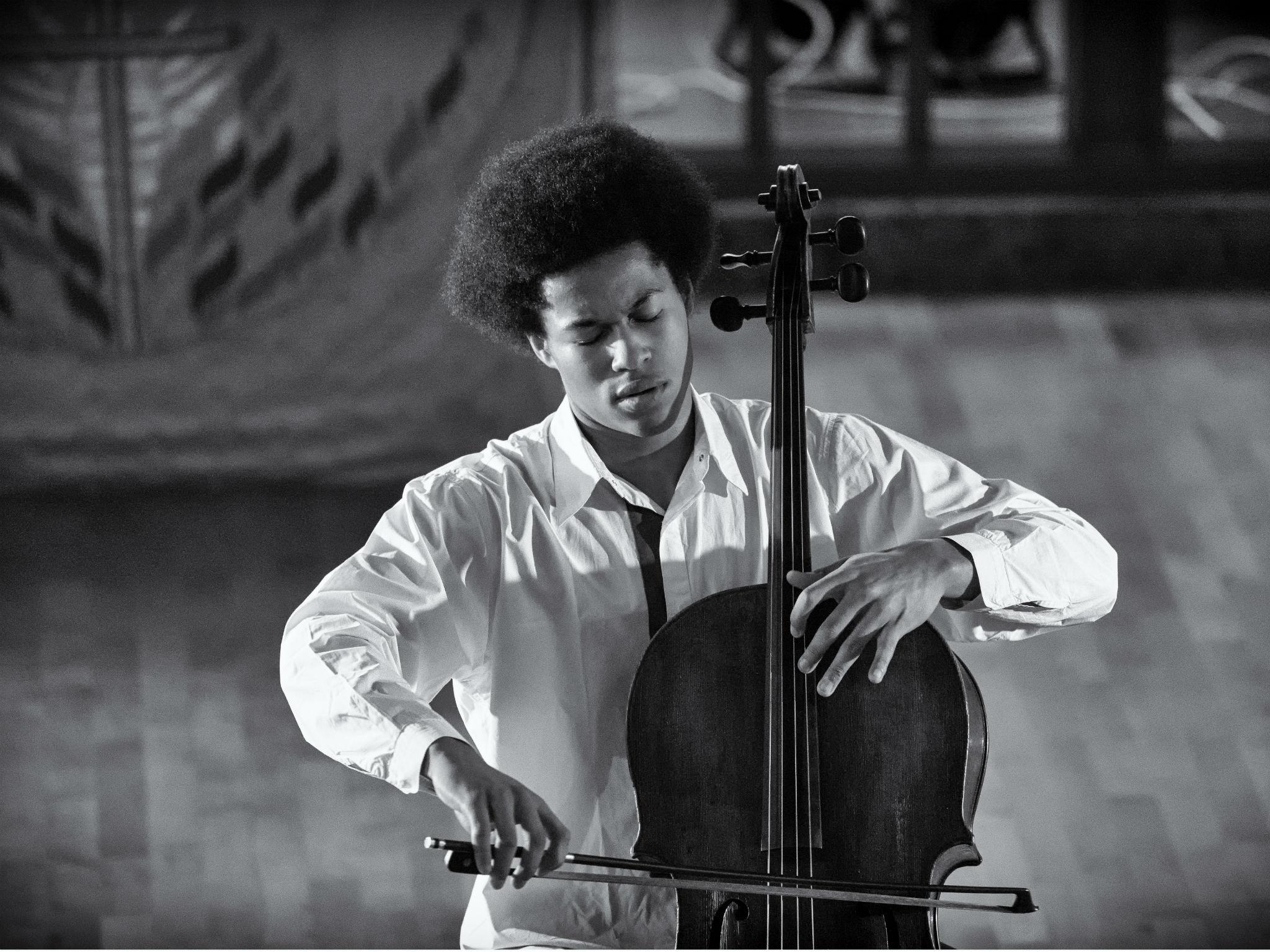Sheku Kanneh-Mason/Isata Kanneh-Mason, King’s Place, London, review: A star duo is born
The 2016 BBC Young Musician Sheku Kannah-Mason was accompanied by his sister Isata for this recital

Your support helps us to tell the story
From reproductive rights to climate change to Big Tech, The Independent is on the ground when the story is developing. Whether it's investigating the financials of Elon Musk's pro-Trump PAC or producing our latest documentary, 'The A Word', which shines a light on the American women fighting for reproductive rights, we know how important it is to parse out the facts from the messaging.
At such a critical moment in US history, we need reporters on the ground. Your donation allows us to keep sending journalists to speak to both sides of the story.
The Independent is trusted by Americans across the entire political spectrum. And unlike many other quality news outlets, we choose not to lock Americans out of our reporting and analysis with paywalls. We believe quality journalism should be available to everyone, paid for by those who can afford it.
Your support makes all the difference.The career of 18-year-old Sheku Kanneh-Mason has so far gone straight as an arrow. Starting the cello at six, he passed Grade 8 at nine with the highest marks in Britain; after starring with his siblings on Britain’s Got Talent, he went on to become BBC Young Musician of the Year at sixteen with a blistering account of Shostakovich’s first cello concerto. This summer he made his first-ever visit to the Proms, but not as a member of the audience: he was there as soloist with the BME – black and minority-ethnic – Chineke Orchestra.
His concert at King’s Place represented another milestone, in that this was his first solo recital. But it also reflected something else, for his piano accompanist was his elder sister Isata – the tip of an iceberg, in that there are five other Kanneh-Masons waiting in the wings: all are musicians, all are seriously talented.
The opening work was Sheku’s alone: Gaspar Cassado’s Suite for Solo Cello whose first movement, with clear echoes of Bach’s solo style, emerged with nobility. Sheku’s firm and authoritative sound allowed the measured gravity of the dance behind the music of the second movement to flower; if his intonation in the rapid sardana was at times slightly off, that did not mar its convivial impetuosity; his ruminative pizzicato chords had a guitar-like sweetness. In Beethoven’s Cello Sonata in G minor which followed, brother and sister played symbiotically, teasing out the alternating grandeur and pathos of the Adagio, giving the instrumental dialogue of the middle movement a forceful muscularity, and taking the false endings of the finale as an excuse for dignified playfulness.
A pause to replace a theatrically-breaking string in the first movement of Shostakovich’s Cello Sonata in D minor – followed by a repeat – gave us a chance to get to know that somewhat rebarbative work a bit better. Sheku gave its Largo a yearningly elegiac tone, and for the whirling finale he roughened his sound exhilaratingly while Isata stressed the angularities of her piano part.
This was a triumphant coming-out for these immensely engaging players: a star duo is born.
Join our commenting forum
Join thought-provoking conversations, follow other Independent readers and see their replies
Comments